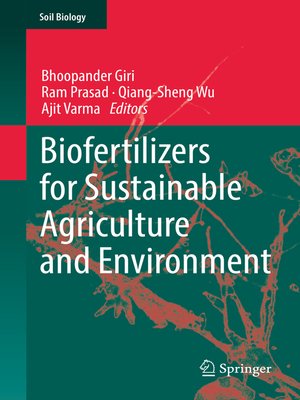
Sign up to save your library
With an OverDrive account, you can save your favorite libraries for at-a-glance information about availability. Find out more about OverDrive accounts.
Find this title in Libby, the library reading app by OverDrive.



Search for a digital library with this title
Title found at these libraries:
| Loading... |
This book provides a comprehensive overview of the benefits of biofertilizers as an alternative to chemical fertilizers and pesticides.
Agricultural production has increased massively over the last century due to increased use of chemical fertilizers and pesticides, but these gains have come at a price. The chemicals are not only expensive; they also reduce microbial activity in agricultural soils and accumulate in the food chain, with potentially harmful effects for humans. Accordingly, it is high time to explore alternatives and to find solutions to overcome our increasing dependence on these chemicals.
Biofertilizers, which consist of plant remains, organic matter and microorganisms, might offer an alternative. They are natural, organic, biodegradable, eco-friendly and cost-effective. Further, the microbes present in the biofertilizers are important, because they produce nutrients required for plant growth (e.g., nitrogen, phosphorus, potassium), as well as substances essential for plant growth and development (e.g., auxins and cytokinins). Biofertilizers also improve the physical properties, fertility and productivity of soil, reducing the need for chemical fertilizers while maintaining high crop yield. This makes biofertilizers a powerful tool for sustainable agriculture and a sustainable environment.
The book covers the latest research on biofertilizers, ranging from beneficial fungal, bacterial and algal inoculants; to microbes for bioremediation, wastewater treatment; and recycling of biodegradable municipal, agricultural and industrial waste; as well as biocontrol agents and bio-pesticides. As such, it offers a valuable resource for researchers, academics and students in the broad fields of microbiology and agriculture.






